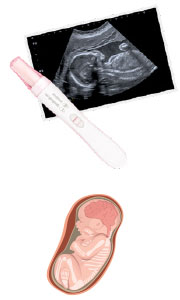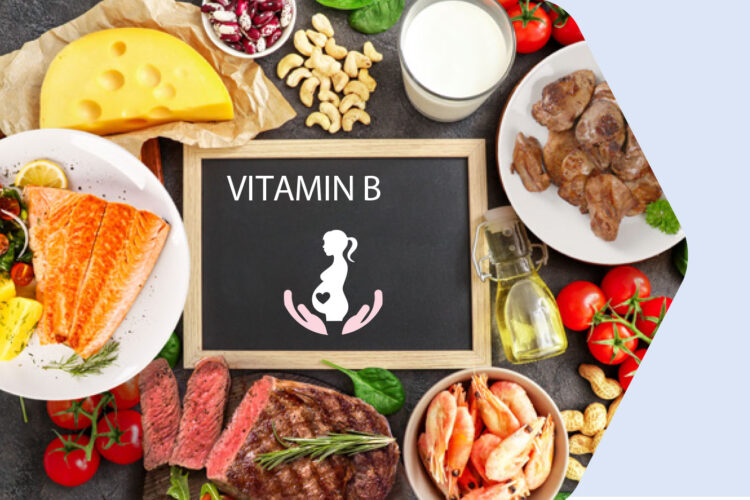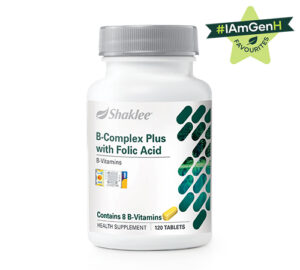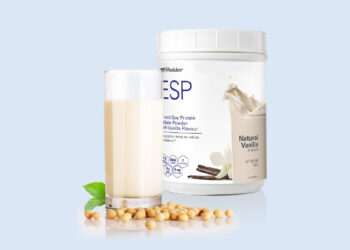
B is Best for Mom and Baby!
When you’re currently pregnant or breastfeeding, you have even more reasons to ensure your nutrient requirements are met so that your little one grows into a healthy baby! Look out for B vitamins as they’re your best friends throughout all stages of pregnancy and beyond.
EARLY PREGNANCY
The greatest concern during pregnancy is if the child develops spina bifida. It happens when the tube around a baby’s developing neural tube doesn’t close completely. B vitamins, especially folic acid (vitamin B9) help to:
- Reduce the risk of neural birth defects such asnspina bifida (spine) and anencephaly (brain).1
Tips: As the neural tube develops during the first 3-4 weeks after conception, you should start taking 400mcg of folic acid daily at least 3 months to 1 year prior conception.9


THROUGHOUT PREGNANCY
You require more folic acid during pregnancy to meet both yours and your growing baby’s need for extra blood. With adequate folic acid, you can:
- Support the production of red blood cells, lowering anaemic risk.
- Lower the risk of low birth weight, premature birth and miscarriage. 2,3
Tips: Take 600mcg of folic acid every day throughout your entire pregnancy.9

THROUGHOUT BREASTFEEDING
Folic acid has been linked to healthy brain development, so it is important that your baby continues to receive this nutrient outside of the womb through breastmilk.
- May reduce the risk of autism spectrum disorder in children.4
- Support baby’s healthy brain development throughout childhood.5
- Reduce the risk of postpartum depression and aids in postpartum recovery.6
Tips: Research shows that those with low levels of folic acid tend to suffer from postpartum depression for a longer period7 so make sure you consume 500mcg of folic acid daily, post-delivery.
POSTPARTUM RECOVERY
B vitamins convert food into energy, giving you the needed boost to take care of your baby, post-delivery.
- Give you the energy8 you need to keep up with your new bundle of joy.
- Vitamin B3 and B7 help nourish hair follicle cells for healthy and stronger hair.
- Vitamin B3 and B5 promote better skin complexion and moisture.
- Vitamin B12 is essential for the health and growth of your nails.
Tips: For better days ahead, take B vitamins beyond pregnancy

REFERENCES:
1. Ami, N., Bernstein, M., Boucher, F., Rieder, M., Parker, L., & Canadian Paediatric Society, Drug Therapy and Hazardous Substances Committee (2016). Folate and neural tube defects: The role of supplements and food fortification. Paediatrics
& child health, 21(3), 145–154. https://doi.org/10.1093/pch/21.3.145
2. Scholl, T. O., & Johnson, W. G. (2000). Folic acid: influence on the outcome of pregnancy. The American journal of clinical nutrition, 71(5 Suppl), 1295S–303S. https://doi.org/10.1093/ajcn/71.5.1295s
3. Bang S.W., & Lee S.S. (2009) The factors affecting pregnancy outcomes in the second trimester pregnant women Nutr Res Pract. 2009 Summer;3(2):134-140. The Korean Nutrition Society and The Korean Society of Community Nutrition.
https://doi.org/10.4162/nrp.2009.3.2.134
4. Schmidt, R. J., Tancredi, D. J., Ozonoff, S., Hansen, R. L., Hartiala, J., Allayee, H., Schmidt, L. C., Tassone, F., & Hertz-Picciotto, I. (2012). Maternal periconceptional folic acid intake and risk of autism spectrum disorders and developmental
delay in the CHARGE (CHildhood Autism Risks from Genetics and Environment) case-control study. The American journal of clinical nutrition, 96(1), 80–89. https://doi.org/10.3945/ajcn.110.004416
5. Maureen, B. (2008). Effects of B-12 and folate deficiency on brain development in children. Food and nutrition bulletin. 29. S126-31. 10.1177/15648265080292S117.
6. Miller, B.J., Murray, L., Beckmann, M., Kent, T., Macfarlane, B., (2013). Dietary supplements for preventing postnatal depression. Cochrane Database of Systematic Reviews, Issue 10. Art. No.: CD009104. DOI: 10.1002/14651858.CD009104.
7. Yan, J., Liu, Y., Cao, L., Zheng, Y., Li, W., & Huang, G. (2017). Association between Duration of Folic Acid Supplementation during Pregnancy and Risk of Postpartum Depression. Nutrients, 9(11), 1206. https://doi.org/10.3390/nu9111206
8. Huskisson, E., Maggini, S., & Ruf, M. (2007). The Role of Vitamins and Minerals in Energy Metabolism and Well-Being. Journal of International Medical Research, 277–289. https://doi.org/10.1177/147323000703500301
9. Recommended Nutrient Intake for Malaysia (RNI) 2017.















